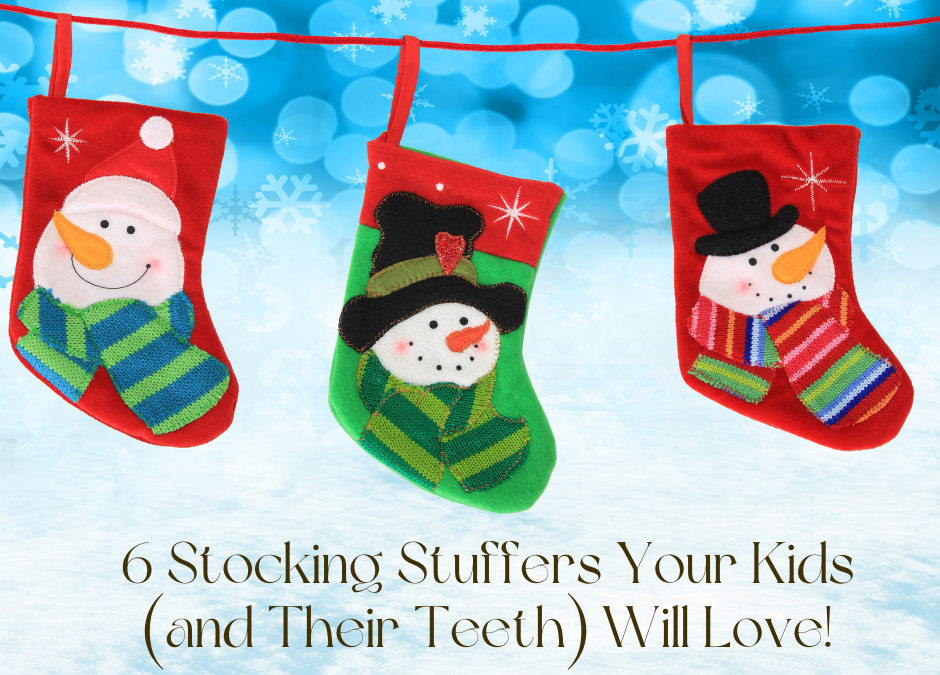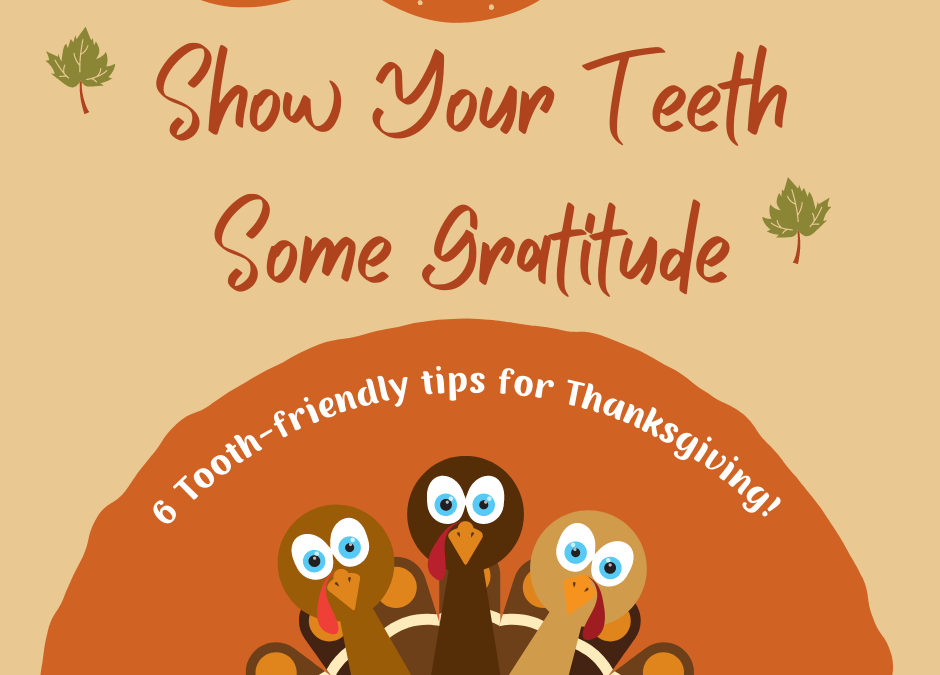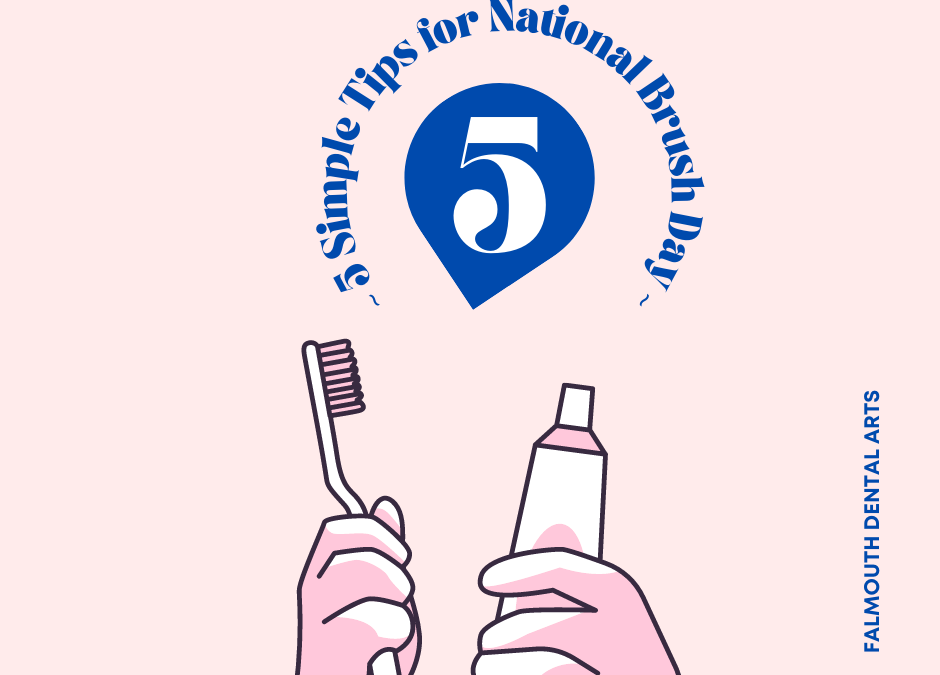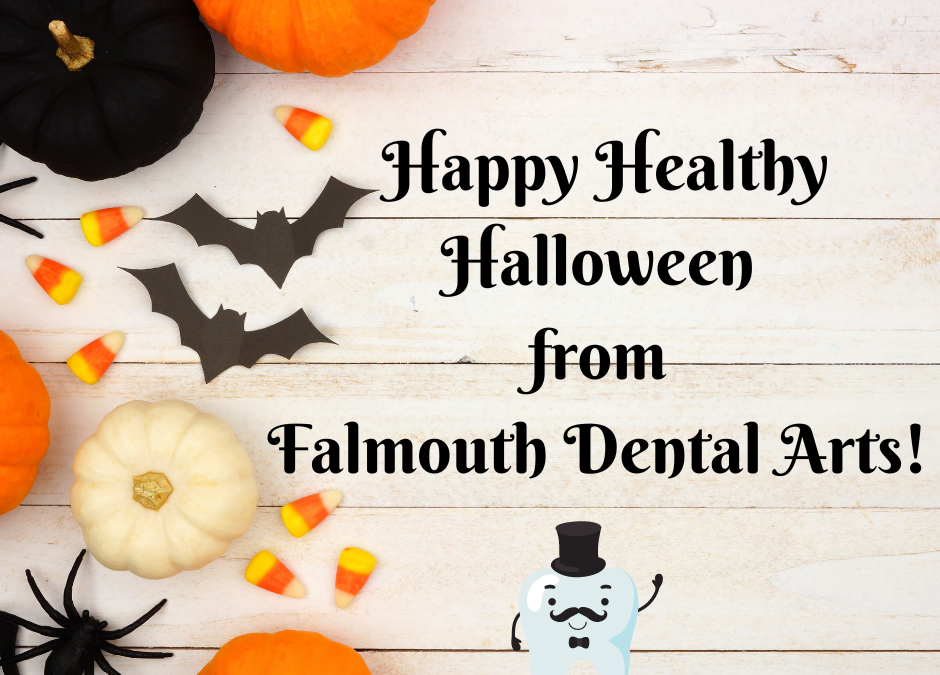
Dec 1, 2022
We’ve said it before and we’ll say it again: here at FDA, we believe that good oral health habits start early! What better way to get the kids excited about brushing, flossing, and taking good care of their teeth than with lots of fun, tooth-friendly dental products in their stocking? Here are a few ideas…
1) A Fun New Toothbrush
Santa can make brushing fun! Regular or electric, fun colors, characters, and themes, toothbrushing timers, and music – there’s a toothbrush for everyone. Ask your hygienist – or anyone on the FDA team of dental professionals – what toothbrush would be best for your child. We also carry professional products we recommend, like toothpaste and mouthwash,, so just ask!
2) Flavored Floss
Encourage your child to floss daily by adding kid-sized flossers to their stockings. Flossers come in lots of cool shapes and colors as well as yummy flavors like grape and bubblegum!
3) A Mouthguard
If your child plays a contact sport, a new mouthguard is always a smart gift! Follow the American Dental Association’s guidelines to make sure you choose one that offers enough protection for your child, or ask Dr. Brunacini or Dr. Karagiorgos for an option they recommend!
4) Lip Balm
Dry weather and indoor heating can lead to dry skin and lips in the winter months. Lip balm is the perfect size to add to your child’s stocking and will help keep his or her lips moisturized at home and at school.
5) Sugar-Free Gum
Chewing sugar-free gum with xylitol can actually help to keep your child’s teeth cleaner between meals. Sugar-free gum with xylitol can help to produce extra saliva and wash away food particles after eating and has actually been found to reduce cavities. Be careful not to let your pets access any products containing xylitol, as it is harmful for our furry family members.
6) A Tooth Fairy Pillow
If your child is at the age when the Tooth Fairy is likely to be making multiple visits to your house, a Tooth Fairy pillow will make a great stocking stuffer. Having a Tooth Fairy pillow makes losing a tooth (link to blog post about loose teeth) even more exciting, and there are lots of inexpensive options available online with websites like Etsy.
So stock up this holiday with some dental products that will keep you kids smiling all year long! If you have questions or need to schedule their next check up, give us a call today! 207.781.5900.
Happy Holidays!

Nov 29, 2022
What is Integrative Dentistry?
Here at FDA, Dr. Brunacini and Dr. Karagiorgos and our team of compassionate dental professionals follow an Integrative Dentistry philosophy – but what does this mean? Integrative Dentistry, also called Holistic Dentistry, Alternative Dentistry, or Complementary Dentistry, is a philosophy that takes the patient’s entire wellbeing into account when providing oral care. Dental practices that use an integrative approach believe that oral health and general health are forever connected. By approaching dentistry with the whole body in mind, we can better educate and communicate with our patients. Another important component of Integrative Dentistry is the belief that patients should be actively involved in their own treatment plan. This is why we build a partnership with our patients and encourage them to make a personal commitment to their oral hygiene.
How are Oral Health and General Heath Connected?
At FDA, our goal is to become an integral part of your health care team and help you set up an oral health plan that takes your whole body’s health in mind. Poor dental care has been linked to a variety of health issues, such as cardiovascular disease and complications in diabetes. Sometimes when our patients report that they have been feeling ill or rundown, it is revealed that there is a dental issue behind the scenes that is affecting the person’s entire wellbeing. This is why it is so important for Dr.Brunacini and Dr. Karagiorgos to be included as part of a patient’s healthcare team.
Our Approach
We always approach dental care with an eye to the health of the whole person. As integrative-oriented dentists, we stay up-to-date on the latest information regarding what materials are the safest to use with our patients. This includes mercury amalgam fillings, metal crowns, root canals and fluoride among others. We are constantly searching for the safest and least invasive products and procedures that “do no harm.”
We build a partnership with our patients and include them when creating a treatment plan. As iIntegrative-oriented dentists, our patients have a voice and we always defer to what is best for you. Dr. Brunacini and Dr. Karagiorgos will help you decide which Integrative Dentistry procedures are best for your needs.
To learn more about our Integrative Dentistry approach or if you would like to schedule an appointment, please give us a call at 207.781.5900, as we’re always here to help.

Nov 2, 2022
6 Tooth-friendly tips for Thanksgiving!
At Falmouth Dental Arts, we are so grateful for our patients and our team of compassionate dental professionals! Our goal is to develop a partnership with you and we want you to have a healthy smile all year round. That’s why, in addition to visiting us at least twice a year, we encourage our patients to follow a good oral health routine at home, which goes beyond the toothbrush and includes a healthy diet and lifestyle choices.. Here are 6 tips to show your teeth some gratitude on Thanksgiving and every day!
1) Quit Smoking
November is National Smoke Out Month, so it’s a great time to make a commitment to quit smoking and vaping for your oral health and general wellness. Not only does smoking and using other tobacco products cause damage to your teeth and gums, but it also has the potential to weaken your immune system and raise your risk of oral and other cancers. For resources to quit smoking, visit the American Cancer Society and let Dr. Brunacini or Dr. Karagiorgos know so they can support you as well!
2) Don’t Use Your Teeth as a Tool
You don’t want to have a dental emergency in the middle of your Thanksgiving festivities, so refrain from using your teeth as a nutcracker, ice crusher, or bottle opener (no matter how impressive these skills may be)!
3) Choose Tooth-Friendly Foods
There are so many delicious foods to choose from on Turkey Day, but which ones will do your teeth some good? A healthy diet is an important part of your oral health, and fortunately there are a lot of tasty options that will support your chompers as you feast.
Turkey is high in protein, calcium, and vitamin D, making it a great choice. Fresh and cooked veggies also get a green light. Munch on other healthy snacks like cheese, nuts, and fresh fruit.
4) Drink Water
A good rule of thumb for Thanksgiving and every day is to drink plenty of water. Water is great for your digestion and overall wellness and it’s also a great drink choice to have with meals. This is because water washes away any debris left behind after eating and reduces bacteria. So make sure you guzzle some water as you gobble your turkey!
5) Brush and Floss After the Big Meal
Don’t feel too guilty about eating lots of sweets or having an extra glass of wine on this special day – just remember to brush and floss your teeth after you finish eating or at the end of the day! Link to the toothbush post for tips!
6) Chew Gum
If you are not at home for the holiday and can’t brush and floss after your meal, chewing sugar-free gum can help; gum can clean your mouth by producing extra saliva that can wash food particles away. Then when you do return home, you can go through your regular routine.
We hope you have a wonderful Thanksgiving with your family and friends. Thank you for being a part of the FDA family! If you have any questions for Dr. Brunacini or Dr. Karagiorgos about your oral health routine or need to make an appointment, give us a call at 207.781.5900, as we’re here to help!

Nov 1, 2022
November 1st is National Brush Day and we’re celebrating all month by raising awareness about the importance of good tooth brushing habits. At FDA, we always love an opportunity to share our oral health care recommendations and have 5 tooth brushing tips to share with you!
1) Look for the American Dental Association’s Seal of Approval
Choose a toothbrush (and toothpaste!) that displays the American Dental Association’s (ADA) Seal of Acceptance. Both manual and electric toothbrushes can thoroughly clean your teeth and gums when done correctly; we prefer electric toothbrushes for their superior plaque-fighting powers. Make sure you select a toothbrush with extra-soft or soft bristles. For help choosing a toothbrush, ask the FDA team for a recommendation!
2) Brush Twice a Day to Keep Cavities at Bay
We recommend brushing a minimum of two times per day for at least two minutes each time. The ADA has updated its list of proper tooth brushing techniques to include the following:
- Place your toothbrush at a 45-degree angle to the gums.
- Gently move your toothbrush in a circular motion (tooth-wide) to mimic the motion of an electric toothbrush.
- Brush all outer surfaces and inner surfaces as well as the chewing surfaces of your teeth.
- To clean the inside surfaces of the front teeth, tilt the brush vertically and make several up-and-down strokes.
Feel free to ask your hygienist for a demonstration of proper brushing techniques at your next appointment. Our team of compassionate dental professionals really love educating patients!
3) Wait 30 Minutes After Acidic Food & Drinks
Brushing right after eating or drinking acidic food and drinks can damage your tooth enamel. This includes citrus foods or juices, carbonated beverages, and wine. Drink some water to rinse your mouth instead, or simply wait 30 minutes until you brush.
4) Out with the Old, In with the New
Replace your toothbrushes every three to four months, or more often if the bristles are starting to show signs of wear, such as crooked or frayed bristles. We are always happy to give you a new toothbrush at your next appointment…just ask!
5) Show Your Toothbrushes Some TLC
Rinse your toothbrush thoroughly after you use it and store it in an upright position, allowing it to air dry each time. This will reduce the growth of bacteria in between brushing sessions.

Oct 11, 2022
Happy Healthy Halloween from FDA!
Here at FDA, we are all about teaching healthy oral care habits right from the start, but we also want the kiddos to have lots of FUN on one of the most popular holidays of the year – Halloween! All the little trick-or-treaters out there can go ahead and enjoy their Halloween treats without causing major damage to their pearly whites! Here’s how…
1. Count Your Candy
Let your child know how many pieces of candy he or she can eat in one sitting. After they have finished their candy quota for the day, put it away. Adults should follow this rule too (no more sneaking your favorite candy into the closet)!
2. Save Some for a Rainy Day
Decide how many days you and your child can enjoy snacking on the Halloween candy stash and then save some for later by storing it in the freezer. You can also reduce your supply by donating leftover candy to an organization that sends care packages overseas to active military members to lift their spirits.
3. Choose Tooth-Friendly Treats
Candy that is easy to chew and swallow is always better for the teeth than sticky and chewy choices that tend to linger on the teeth. Chocolate bars and crunchy or easily-dissolvable candy are preferable over taffy, caramel, and sticky choices.
4. Brush ASAP
Encourage your child to floss and brush right after eating Halloween candy, especially if it was something sticky or chewy that could get stuck on or in between the teeth. The sooner your child brushes his or her teeth, the better, to minimize any damage to the enamel of the teeth. This is even more important if your child eats candy late in the evening, as sleeping with sugar on the teeth can increase his or her risk of getting a cavity. Following up toothbrushing with a fluoride rinse is also a good idea.
5. Rinse with Water
Drinking water after eating or drinking anything sugary is always a great cavity preventative. Drinking water after meals is a healthy habit that helps rinse your mouth of bacteria and neutralize the acidity in the mouth caused by foods to help prevent tooth decay and cavities.
6. Schedule a Checkup
Now that the kids are busy back at school and with extracurricular activities, it’s easy to forget to schedule your child’s regular hygiene appointments. Give us a call at 207.781.5900 if you have any questions about your child’s oral health, or would like to schedule an appointment – we’re here to help!





